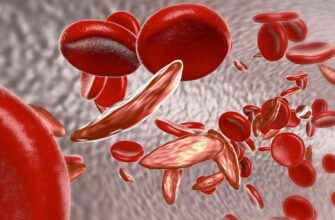Nasal polyps are small, noncancerous growths that develop in the lining of the nose or sinuses. These growths can cause various symptoms, including nasal congestion, loss of sense of smell, and postnasal drip. Here’s everything you need to know about nasal polyps, including their causes, symptoms, and treatment options.
Causes of Nasal Polyps
The exact cause of nasal polyps is not known, but some factors that may increase the risk of developing them include:
- Chronic inflammation in the nose or sinuses
- Asthma
- Allergic rhinitis (hay fever)
- Cystic fibrosis
- Aspirin sensitivity
- Genetic factors
Symptoms of Nasal Polyps
Nasal polyps may cause the following symptoms:
- Persistent stuffiness or congestion
- Runny nose
- Postnasal drip
- Decreased sense of smell or taste
- Facial pain or pressure
- Snoring
- Itching around the eyes
Diagnosis of Nasal Polyps
A doctor may diagnose nasal polyps through a physical exam of the nose or with the help of imaging tests such as a CT scan. In some cases, a biopsy may be required to rule out cancer.
Treatment Options for Nasal Polyps
The treatment options for nasal polyps include:
- Nasal corticosteroids to reduce inflammation
- Nasal saline irrigation to flush out mucus and allergens
- Oral corticosteroids to reduce inflammation in severe cases
- Surgery to remove the polyps, especially if they are large or causing complications
- Allergy shots to reduce the risk of developing polyps in the future
Preventing Nasal Polyps
To prevent nasal polyps, it’s important to manage any underlying conditions that may contribute to their development, such as allergies or asthma. Avoiding irritants such as cigarette smoke and reducing exposure to allergens can also help prevent nasal polyps.
Complications of Nasal Polyps
If left untreated, nasal polyps can cause complications such as:
- Recurrent sinus infections
- Obstructive sleep apnea
- Asthma exacerbations
- Meningitis or brain abscess in rare cases
Lifestyle Changes to Manage Nasal Polyps
Some lifestyle changes that may help manage nasal polyps include:
- Using a humidifier to keep the air moist
- Staying hydrated by drinking plenty of fluids
- Avoiding irritants such as cigarette smoke and strong odors
- Eating a healthy diet rich in fruits and vegetables
- Getting regular exercise to improve overall health and reduce inflammation
When to See a Doctor
You should see a doctor if you experience persistent symptoms of nasal polyps such as nasal congestion, postnasal drip, or decreased sense of smell. Seek emergency medical attention if you experience severe headache, high fever, or confusion, as these may be signs of a complication.
Prognosis of Nasal Polyps
The prognosis of nasal polyps is generally good with appropriate treatment. However, they may recur even after successful treatment, especially if the underlying conditions are not managed.
Living with Nasal Polyps
Living with nasal polyps can be challenging, but with proper treatment and self-care, most people can manage their symptoms and live a normal life. It’s important to work closely with your doctor to develop a personalized treatment plan that meets your needs.
Alternative Treatments for Nasal Polyps
In addition to traditional treatments, some alternative therapies may help manage symptoms of nasal polyps, such as:
- Acupuncture: Acupuncture involves the insertion of thin needles into specific points on the body to reduce inflammation and relieve pain.
- Herbal remedies: Some herbs such as butterbur, stinging nettle, and ginkgo biloba may have anti-inflammatory properties that can reduce nasal polyp symptoms.
- Probiotics: Probiotics are beneficial bacteria that can help regulate the immune system and reduce inflammation in the body.
- Essential oils: Certain essential oils such as tea tree, eucalyptus, and peppermint may help reduce nasal congestion and inflammation.
It’s important to note that alternative treatments should not replace traditional medical treatments, and you should always consult with a healthcare professional before trying any new therapy.
Conclusion
Nasal polyps are a common condition that can cause a range of symptoms, from mild nasal congestion to more severe complications. By understanding the causes, symptoms, and treatment options for nasal polyps, you can work with your healthcare provider to develop a personalized treatment plan that meets your needs. Whether through traditional medical treatments or alternative therapies, managing nasal polyps can help you breathe easier and live a healthier life.











